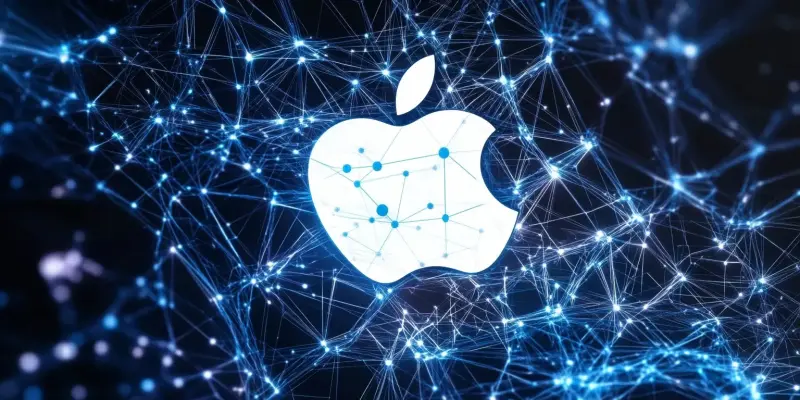The ongoing legal confrontation between Apple and the UK government over access to encrypted data has garnered international attention, prompting five US Members of Congress and Senators to demand increased transparency. The crux of the dispute involves a technical capability notice reportedly issued by the UK Home Secretary in February, which requires Apple to grant the British government access to end-to-end encrypted (E2EE) data stored in its iCloud service. Such demands fall under the purview of the Investigatory Powers Act (IPA) of 2016, a controversial law enabling the government to compel tech companies to unmask users suspected of serious crimes.
The demands specific to the Investigatory Powers Act (IPA) of 2016 put Apple in a difficult position, as the UK government seeks to impose its authority to gain access to encrypted data. The IPA allows the government to issue technical capability notices (TCNs) compelling tech companies to assist in surveillance. Critics argue that such notices undermine the very foundation of encryption, which is designed to protect user data from unauthorized access. If Apple were to comply with this demand, it would set a precedent that could lead to further erosions of digital privacy.
US legislators have underscored the potential security risks and infringements on privacy rights posed by this request. They argue that weakening iCloud encryption threatens not just user privacy, but also impacts free speech, US-UK oversight, and national security. American legislators have emphasized that creating backdoors in encryption protocols could potentially be exploited by adversaries, thereby jeopardizing the security of sensitive data. Recent high-profile cyber-attacks like the Salt Typhoon incident and the Snowflake breach highlight the vulnerability of even the most robust security systems, raising concerns about the additional risks introduced by such demands.
The legislators’ concerns are not unfounded, as they cite the statement made by US Director of National Intelligence Tulsi Gabbard. She asserted that the UK’s demand for access to encrypted data would be a significant violation of Americans’ privacy rights, thus creating vulnerabilities that could be exploited by malicious actors. This perspective highlights a fundamental conflict between national security measures and the protection of personal privacy. The dilemma is further complicated by the fact that these encryption systems are used not only by private individuals but also by businesses and governmental organizations worldwide, making their integrity paramount.
The call for public hearings in the Apple case underscores the need for transparency in the decision-making process. US lawmakers believe that open proceedings would ensure a fair assessment by inviting expert opinions from cybersecurity specialists and civil society representatives. Transparency in this high-stakes legal battle matters because it can boost public trust in the process and outcome. Only through a transparent process can a balanced view be reached, considering both the need for security and the imperative of protecting individual privacy rights.
Digital advocacy groups such as the Open Rights Group, Big Brother Watch, and Index on Censorship have echoed these calls for transparency. These organizations argue that the issue transcends national borders, reflecting a broader global debate about the balance between technological privacy and national security. Similar legislative proposals have been emerging in countries like France and Sweden, raising the stakes for international cohesion on these critical issues. The controversy signals a shift in how governments and private entities negotiate the delicate balance between surveillance capabilities and personal privacy rights.
American technology companies, in particular, are closely monitoring the outcome of this legal battle. The potential ramifications include undermining consumer trust and facing increased scrutiny and regulatory pressures globally. If Apple is coerced into complying with the UK’s demands, it sets a dangerous precedent that could be replicated by other governments. This would create a ripple effect, as tech companies seek to navigate the complex legal landscapes of multiple jurisdictions while protecting their users’ data. Nevertheless, it’s clear that the outcome of this case will have far-reaching implications for the global technology sector.
The ongoing legal battle between Apple and the UK government over access to encrypted data has captured international attention. This dispute has prompted five US Members of Congress and Senators to call for greater transparency. The core issue revolves around a technical capability notice reportedly issued by the UK Home Secretary in February, which mandates Apple to provide the British government with access to end-to-end encrypted (E2EE) data stored in its iCloud service. This demand is rooted in the Investigatory Powers Act (IPA) of 2016, a contentious law that empowers the government to force tech companies to disclose user information if they are suspected of serious crimes. The legal confrontation has sparked a wider debate about privacy, security, and government power. Advocates for privacy argue that weakening encryption could expose users to risks, while proponents of the law insist it is crucial for national security. As this case unfolds, its implications for global digital privacy and security remain profound.

